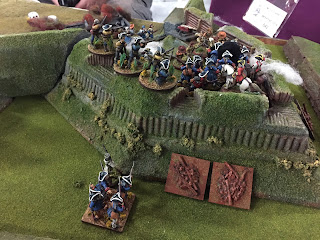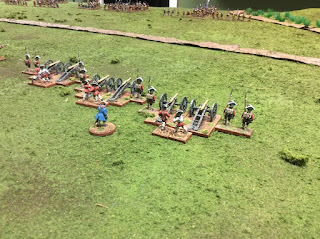The little fort and trench system saw significant action in the scenario. The French force advanced directly on the trench positions and did not invest in positions on the flanks. This proved to be costly in terms of casualties. The French regulars advanced in line, as is common for the period - and actually reminiscent of another battle in the New World near Lake George where Baron Dieskau employed this same tactic and lost. The scenario played out exactly that way. The French regulars poured a very disciplined line of firepower into entrenched positions which returned fire accurately at them in the open.













































































